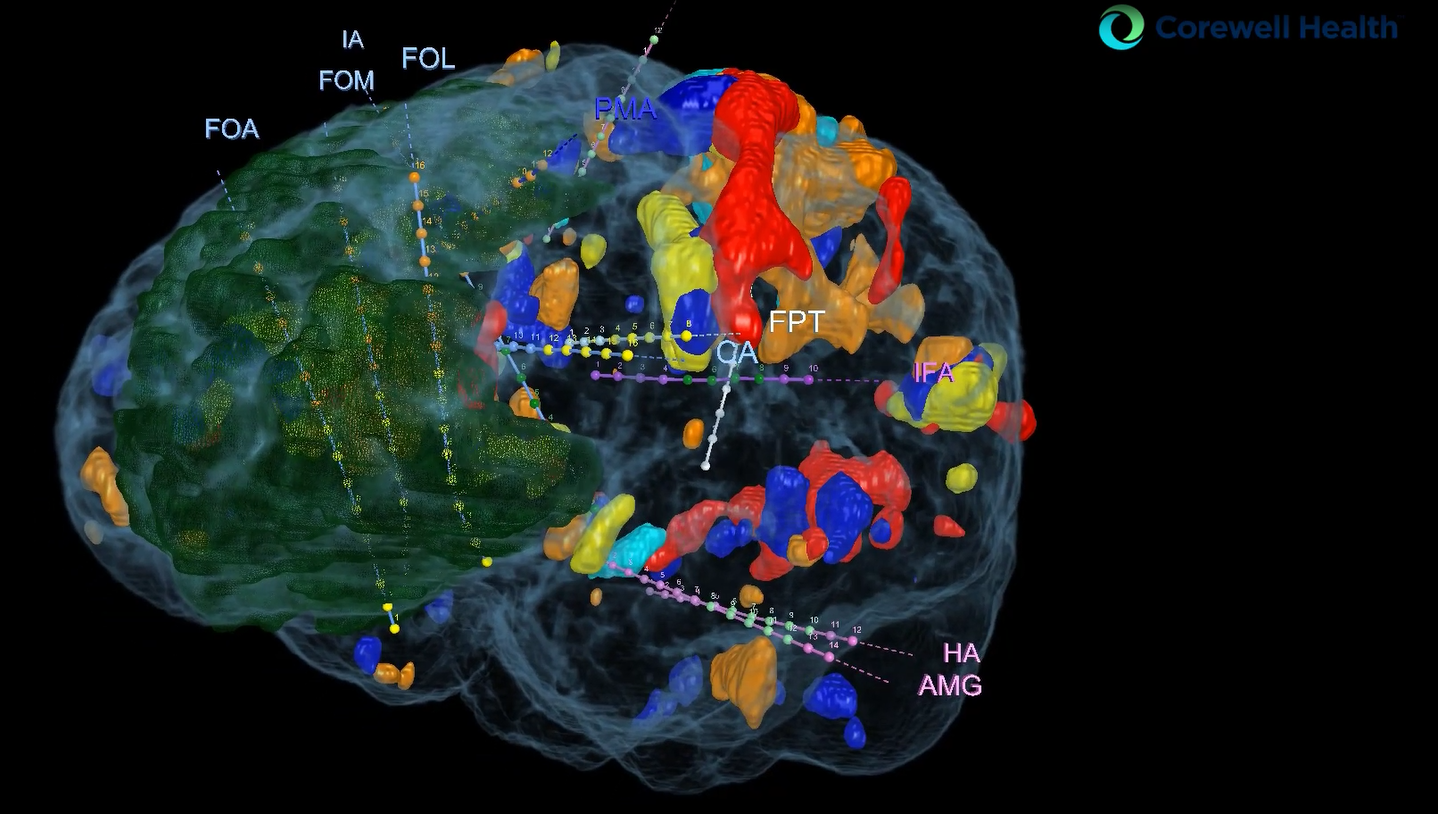Thursday, February 29, 2024

Hospital is first in Michigan to utilize Surgical Theater’s eXperiential Reality Platform
Corewell Health™ in Southeast Michigan is using virtual and augmented reality technology to enable patients to “tour” their own brains and assist physicians with planning and surgery. Corewell Health is the first and only health system in Michigan to use Surgical Theater’s eXperiential Reality platform in neurosurgery cases.
This innovative technology combines 2D images from a patient’s MRI and CT scans to create 360° 3D images of a patient’s brain. During consultations, patients and families "fly" through the brain via a virtual reality (VR) headset, getting a close-up look at brain tissue and vessels.
“It is a revolutionary tool that allows us to visually show our patients and families the intricacies of what we will be doing in surgery,” said Cesar Serrano Almeida, M.D., the medical director of epilepsy surgery at Corewell Health Children’s in Southeast Michigan. “This visual helps our patients gain a deeper understanding of our surgical plan, so they can make informed medical decisions and be as comfortable as possible going into their surgery.”
The VR technology also plays a vital role in helping physicians plan a customized surgical approach for each patient before ever stepping into the operating room.
“Before this cutting-edge technology, we’d reference black-and-white 2D images of the brain, using our imagination, knowledge and decades of surgical experience to map out the procedure in our heads,” said Fernando Diaz, M.D., PhD, chair of neurological surgery at Corewell Health in Southeast Michigan. “Now, we’re able to put on a headset and explore – often, changing our whole approach and where we plan to make the first incision. This new perspective allows for pinpoint accuracy during surgery, which minimizes complications.”
During a procedure, surgeons can also add the patient-specific images into a surgical microscope to provide an augmented reality view. This gives them a sort of X-ray vision and the ability to peer around structures they will encounter during surgery.
“Right now, we are applying this technology in neurosurgery for tumors and epilepsy, but we plan to expand and use it in other ways, including plastic surgery, craniofacial reconstruction and spine reconstruction. The possibilities with this technology are endless,” Dr. Diaz said.
Augmented reality models have assisted in more than 70 neurosurgery cases at Corewell Health William Beaumont University Hospital in Royal Oak.
For more information about Surgical Theater, visit beaumont.org/services/neurosurgery/surgical-theater.
